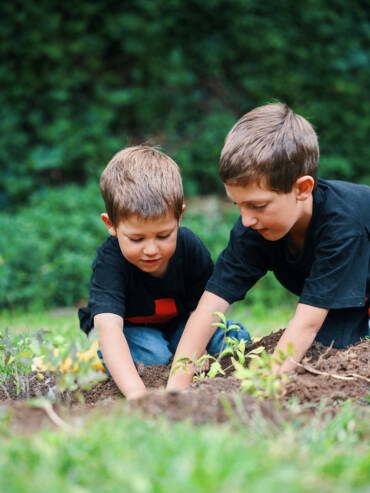


From Experience to Excellence
Experiential Learning: Where Knowledge Comes Alive
“Tell me and I forget. Teach me and I may remember. Involve me and I learn.” – Confucius
In a world that is rapidly evolving, education must move beyond passive transmission of information to active engagement with real-life experiences. Experiential Learning is not a new idea—it is a return to what truly works. It is learning by doing, reflecting, creating, and connecting. It is learning that awakens the senses, stirs the soul, and shapes character.
Rooted deeply in the philosophy of Indian Knowledge Systems and now championed by the National Education Policy 2020 (NEP 2020), experiential learning is the beating heart of meaningful education. It transforms the classroom from a space of instruction to a space of immersion, exploration, and transformation.
What is Experiential Learning?
Experiential Learning is an approach where learners construct knowledge by actively engaging with the world around them. It is learning by doing, thinking, feeling, and applying—where the learner becomes the center of the journey, and every experience becomes a teacher. This is not new to India. For centuries, our Gurukul system immersed learners in hands-on knowledge—be it in astronomy, arts, ethics, or governance—where observation, application, and reflection were integral to mastery. Knowledge wasn’t delivered; it was discovered.
At its core, experiential learning develops:
Critical thinking and problem-solving skills
Collaboration, communication, and creativity
Emotional intelligence and ethical reasoning
A sense of agency, purpose, and lifelong curiosity
Learners don’t just remember facts—they internalize understanding, apply knowledge, and grow as individuals.



David Kolb’s Theory: The Learning Cycle in Action
Experiential Learning, as conceptualized by David Kolb, is based on the idea that knowledge is created through the transformation of experience. His four-stage learning cycle—Concrete Experience, Reflective Observation, Abstract Conceptualization, and Active Experimentation—provides a powerful framework for designing and delivering learning that is both deep and dynamic.
- Concrete Experience – Engaging in a hands-on task or real-life situation.
- Reflective Observation – Thinking deeply about what happened and why.
- Abstract Conceptualization – Drawing conclusions, theories, or principles from the experience.
- Active Experimentation – Applying those insights to new situations or challenges.
This cycle is continuous and adaptable, making it ideal for classrooms that aim to build competencies, foster reflection, and nurture application-oriented thinking.
At Curriculture, Kolb’s theory forms the foundation of how we design experiential programs—ensuring that every learning experience is intentional, reflective, and transformative.
A Legacy Reimagined: Indian Knowledge Systems and Learning by Doing
The roots of experiential learning in India go back millennia. In ancient Gurukuls and Pathshalas, learning was inherently hands-on and purpose-driven. Students learned by observing nature, engaging in discussions, performing duties, and participating in real-life activities—be it astronomy, agriculture, metallurgy, Ayurveda, or philosophy.
This was learning that integrated the head, hand, and heart—a pedagogy of purpose that nurtured wisdom, skill, and values in equal measure.
NEP 2020 beautifully revives this vision by placing experiential learning at the center of education, across all levels and subjects.
NEP 2020 and the Call for Experiential Education
NEP 2020 marks a paradigm shift by recognizing that learning must be rooted in experience, exploration, and expression. It advocates for:
- Inquiry-based and discovery-oriented classrooms
- Project-based, art-integrated, and sports-integrated pedagogies
- Field visits, internships, and real-world problem solving
- Cross-curricular connections and contextual learning
- Reflective practices that promote metacognition
The policy encourages schools to design joyful, meaningful, and locally relevant learning experiences—honoring the learner’s context, culture, and curiosity.
Crafting Learning that Lives Beyond the Classroom
At Curriculture, we bring the philosophy of experiential learning to life, blending Kolb’s theoretical framework, NEP 2020’s progressive vision, and the timeless wisdom of Bharatiya education.
We partner with schools, educators, and institutions to:
- Design experiential curricula rooted in Indian contexts, values, and real-world relevance
- Train teachers to become facilitators of immersive learning using Kolb’s experiential cycle
- Conduct outdoor, heritage, and nature-based education programs
- Create reflection-driven assessment tools aligned with competency-based learning goals
- Develop integrated projects and learning journeys that foster 21st-century skills
From exploring local ecosystems to reimagining history through role-play, from cultural immersions to science in action, we ensure that learning doesn’t stop at the lesson plan—but flows into life itself
Why Experiential Learning Matters Today More Than Ever
In an age defined by complexity and uncertainty, experiential learning:
- Cultivates resilience and adaptability
- Encourages interdisciplinary thinking and innovation
- Builds empathy and civic responsibility
- Awakens joy, meaning, and personal purpose in education
It transforms the learner—not just academically, but intellectually, emotionally, and spiritually.
“Experiential Learning is not an activity. It is a philosophy. A way of seeing, doing, and becoming.”
– At Curriculture, we live by this vision.
Let’s Build the Future, One Experience at a Time
Whether you’re a school leader, educator, policymaker, or parent—you have a role to play in reimagining education. Curriculture invites you to co-create learning environments where children are not merely taught, but awakened. Where every lesson is a journey. Every project is a purpose. Every child is seen, heard, and empowered.
Let us move from passive classrooms to living workshops.
Let us bring learning to life.
Together, let us build a future where every child is an explorer, every experience is a learning opportunity, and every classroom is a space for awakening curiosity, compassion, and confidence.
David Kolb’s Experiential Learning Theory is a transformative framework that unveils the dynamics of how individuals learn and grow through experience. At its core, this theory posits that learning is a cyclic process comprising four key stages: Concrete Experience, Reflective Observation, Abstract Conceptualization and Active Experimentation. By embracing this experiential approach, individuals become active participants in their own learning journey, cultivating a deep sense of curiosity, adaptability, and problem-solving skills.
At Curriculture, we bring David Kolb’s Experiential Learning Theory to life—not as a concept, but as a lived, everyday reality. Through thoughtfully designed programs, immersive workshops, and meaningful engagements, we create learning environments where curiosity is awakened, knowledge is applied, and reflection leads to real growth.
Our educators, deeply grounded in the principles of experiential learning, guide learners through a continuous cycle of doing, thinking, feeling, and reflecting—helping them not just understand the world, but engage with it. In this process, learning becomes personal, purposeful, and transformative.
At Curriculture, experiential learning is not a method—it’s our philosophy, our heartbeat, and our promise. Step into a learning journey where knowledge is not only gained, but truly lived. The path to transformation begins here.

